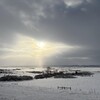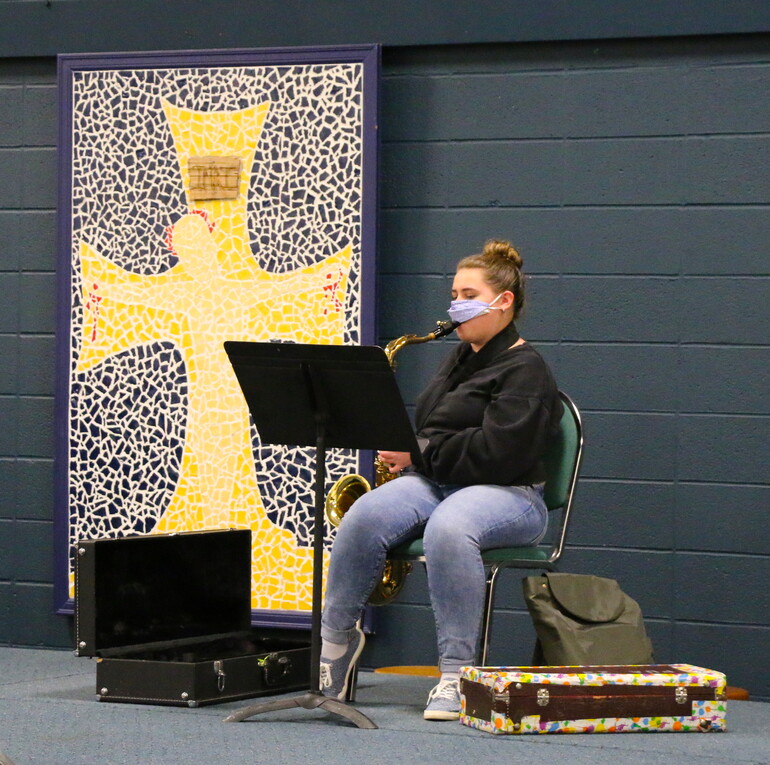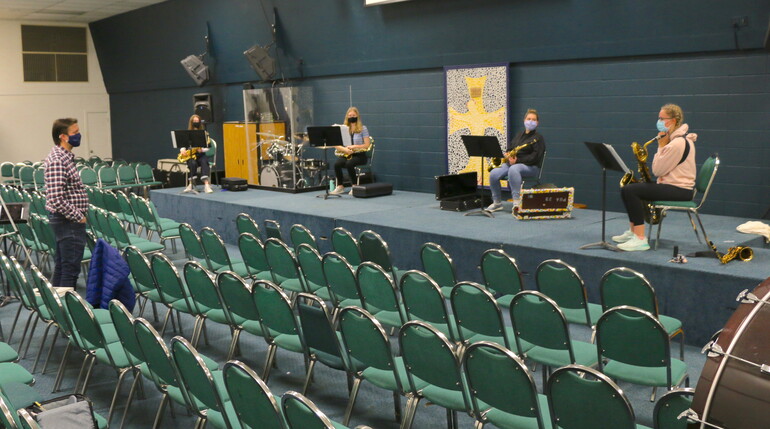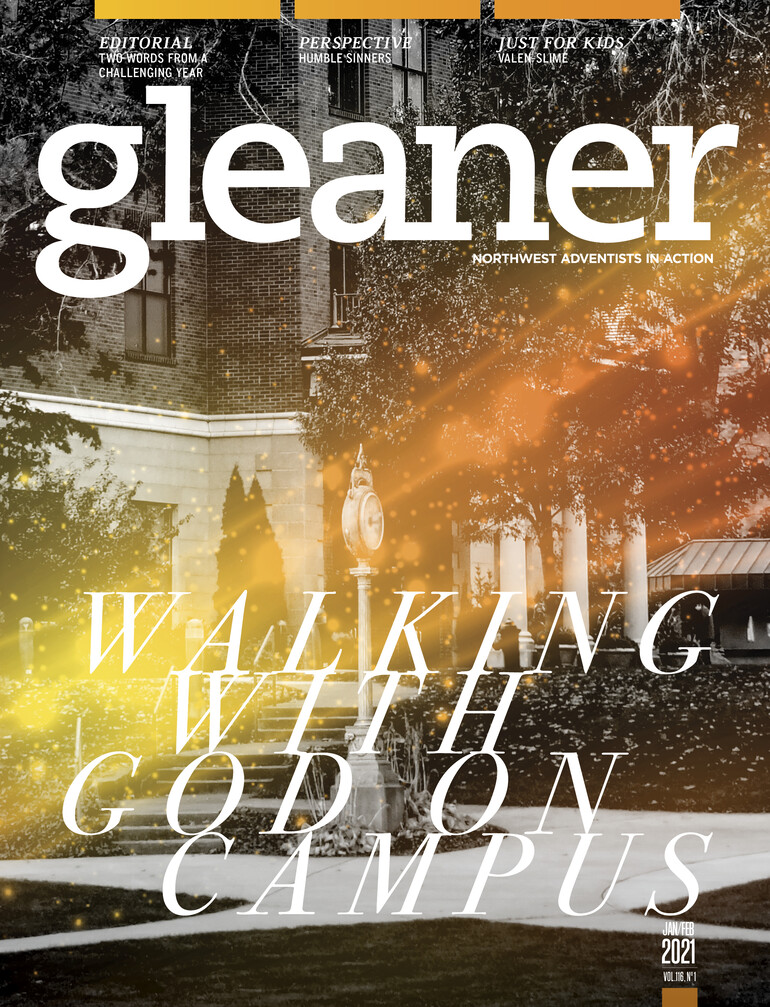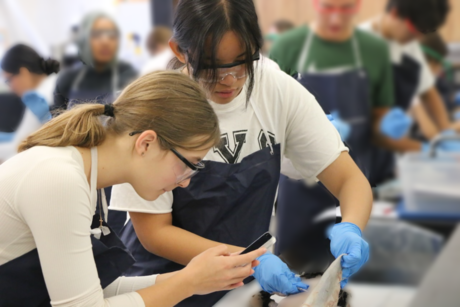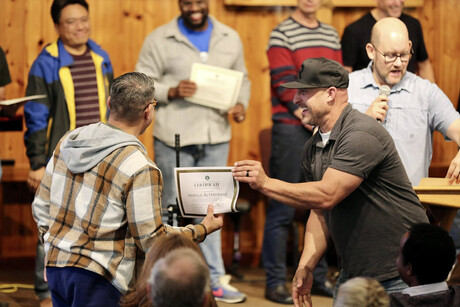Rachel James, a Portland Adventist Academy senior, has been playing saxophone since fifth grade. Although quitting music this school year would have saved her time and energy to work on her senior project, she knew she would regret that.
“Playing in band adds meaning to my life,” says James. “It’s like I’m a part of a team. Plus, I’m developing bonds with people I might not otherwise hang out with.”
As PAA students have only been able to do distance-learning, James attends virtual lessons and group rehearsals on Zoom videoconferencing. She tunes her saxophone with an app on her smartphone and practices alone in her room. She even plays her saxophone while wearing a mask for limited in-person instruction (LIPI). Once she feels confident and has worked through some fears, she uses her smartphone to record a video of herself playing her part. Then she sends it off to her teacher, John Carter, PAA music department chairman.
“The Christmas concert is entirely prerecorded and virtual,” says Carter. “I’ll be editing together as many as 50 different videos and audio to create a composite video.” When PAA resumes on-campus learning, Carter hopes to incorporate many pandemic discoveries into new teaching practices.
In the case of PAA’s performing arts groups, these discoveries are timeless.
1) Fear and Faith
A PAA student who can sing alone and confidently into a camera is a student who has worked hard to overcome fear. Getting comfortable with fear builds faith. This is a skill anyone can carry with them beyond the pandemic.
2) Firsts and Forevers
Students are making PAA history because these are remarkable times. “I’m thinking of our Christmas concert as a time capsule,” says Carter.
3) Feelings and Friendships
While the pandemic has made scars on this generation's social and emotional health, people who find and take moments to be together are deepening their connections.
While the coronavirus causes unspeakable pain, it has also forced innovation and self-discovery. And, in the case of art and music, it has forced rediscovery.
“Music and art remind us that we are part of something bigger than our own individual lives,” says Carter. “To not try to do that during the pandemic is to give up. It is to take away a critical part of humanity, when so much of our humanity has already been taken. And this is hard. But we are still here. And, as our song reminds us, ‘all is well ... angels and men rejoice, for tonight darkness fell ... all is well.'"


